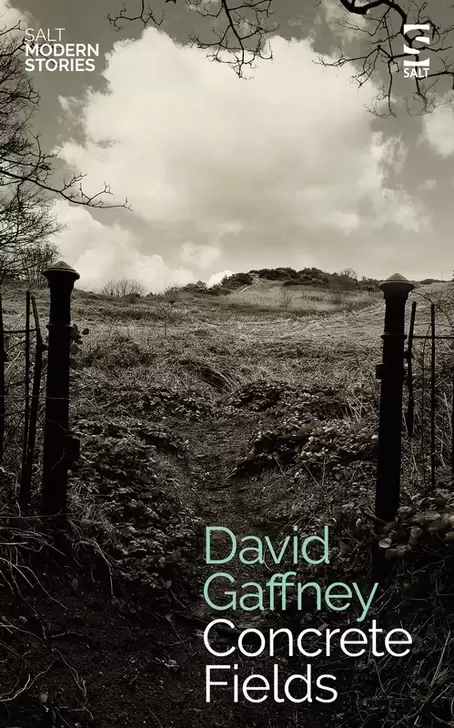Reviews of Concrete Fields

“The main character in The Garages, lives alone in Ian Curtis’s House in Macclesfield, and becomes intrigued to find out why a local man is obsessed with owning the entire row of nearby garages. His ultimate discovery is something unexpectedly thought-provoking and moving.” Carol Morley, The Guardian
BOOK MUNCH August 2023
"I have liked all of David Gaffney’s short, short fiction, and in my view he still leads the way in the short, short fiction form. Lydia Davis or David Gaffney? David Gaffney, for me.
This new collection contains some of David Gaffney’s best work and shows him experimenting in different ways. The first story has all the evidence of close realistic observation of Northern pubs, tarted up for the touring gourmet:
“You couldn’t tell whether the dessert was made from celeriac or not, it looked well presented, and the venue looked authentically countrified, yet with a shimmer of metropolitan style.”
This is Brydon and Coogan country but there is more to it than that. Malevolence hovers in the form of the chef in a photograph, “wielding a gleaming, silver knife and smiling through a luxurious beard.” The story closes in a puzzle, like Robbe-Grillet’s beach figures in “The Strand”, in a kind of endless loop. This is what the stories excel in, the play within and between genres, the disorientation of the reader.
The French influence returns in Gaffney’s fascination with objects. They could be “les nouvelles nouvelles.” A table appears as a character in a later story and a hand starts talking to a head in another. At times the reader could be in
Nikolai Gogol’s St. Petersburg or in pursuit of Ivor Cutler’s berserk leg. Take the first sentence of “The Hands”:
“There was once a man [Ivan Guschevsky, my insertion] who didn’t know what to do with his hands. His hands always felt uncomfortable.” It reads like the kind of story that bloomed in Europe after Gogol.”
The experimental stories, like “The Edges”, from an earlier collection, are built upon here and philosophical concepts like replacement and duplication, those favourites of the twentieth century, are re-imagined, in the context of visits to McDonald’s, and a Carlisle vs Macclesfield football match at the Moss Rose. Everything is grist to the Gaffney mill from a Balti Pie to the murderer Derrick Bird. He even stops and re-starts a story in a different country, more than a three-point turn. This struck me as a much less Anglo-centric book than his previous collections.
Any Cop?: Entertaining, amusing, and unsettling, the core aspects of Gaffney’s work are here in abundance. He is a surrealist realist with the touch of a raconteur, delighting in mashing up our expectations.
Richard Clegg August 2023
Des Lewis
“The couple looked innocently happy, their small trim frames somehow weightless, as if in those days there had been less gravity.”
From David Gaffney's Concrete Fields, The Staring Man An utterly moving story. But I am not sure why. A story of a model being modelled, the model maker Charlotte, her explanation of memorialising the Park as it once was, with her models of the people of the times, certain prescriptive rules as to the overall model, and her cameo staring man (like Hitchcock in all of his own films), staring outward or upward as if that made what was within or deeper below better. A belief in God or not. And an old ex teacher of English with a monochrome photo of him and his nuclear family from the days of the park and its paddling pool, or was it a boating lake? I dare not look back at it. We all can float, if we can relax, whatever it is. Let us take what takes us. And take those we can’t leave behind to fend for themselves. Better that the gravity could have taken her (his daughter) back then? My extrapolations from this story, but if you read it you may only be able to read its surface. It takes someone, an old man like me, to create a diversion from its depths. Or point to them disarmingly, more like.
DES LEWIS